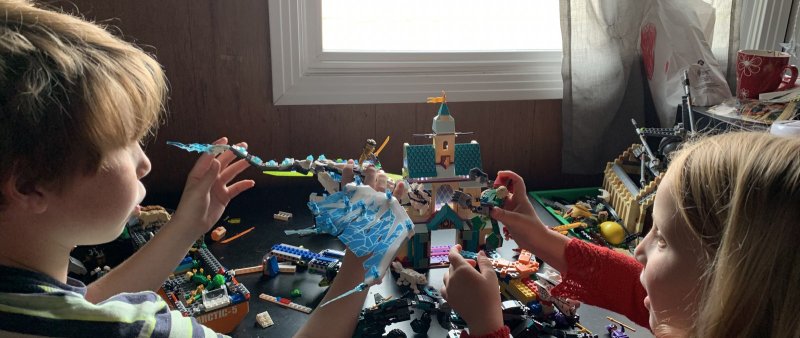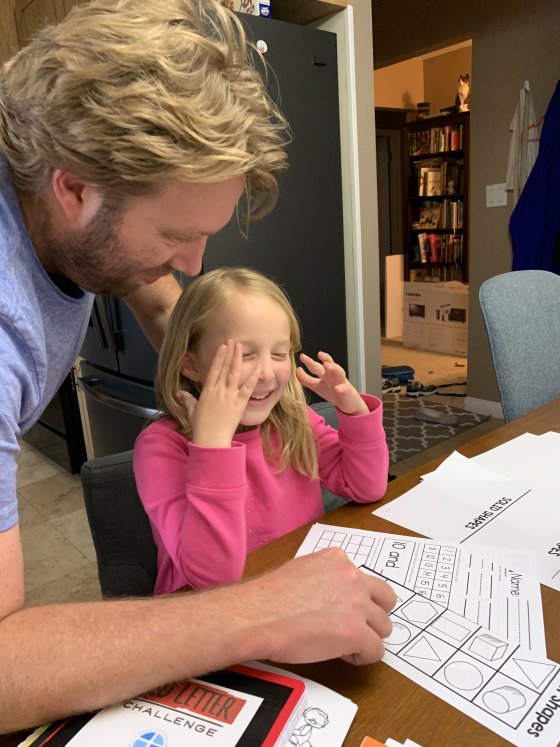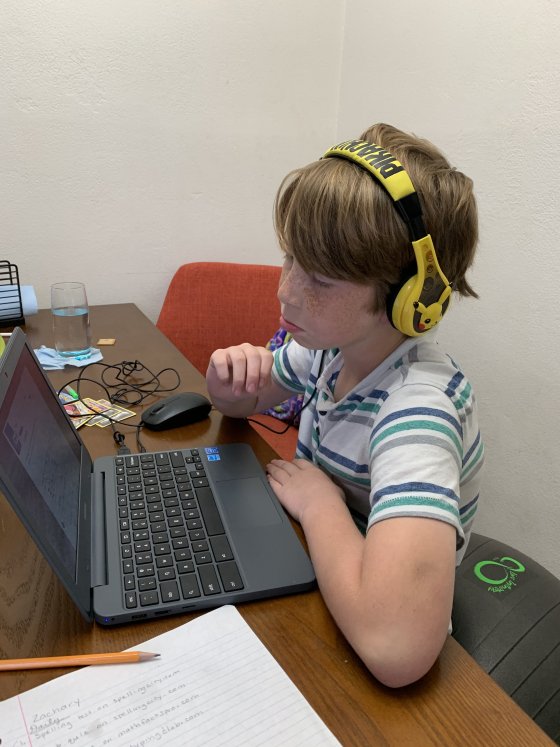
I’m in the trenches with you, writing from my kitchen table while my kids play Legos in the garage and my husband does his engineering work from our hastily converted playroom-to-office area. With almost a billion children out of school due to the outbreak of COVID-19 in the United States, many parents are wondering how to juggle working from home with caring for and homeschooling their children. While no tips or hacks are going to make these days perfectly smooth, some actions can make working from home with children a bit easier. In the challenge, there is also opportunity to build close family bonds and to encourage one another.
PLNU’s Susan Rogers, co-chair of the Department of Sociology, Social Work, and Family Sciences and academic director of PLNU’s Early Childhood Learning Center (ECLC), believes we shouldn’t miss the gifts amidst the stress.
“If you look at this time, we have opportunities that we haven’t had in the past,” she said. “There is going to be more time to connect as families and have some fun family rituals that we may not have had time to do before.”
Establishing Routines and Rituals
Rogers says that one thing experts know about children is that at every stage of development it’s important to help them make sense of their world. Even though it can be challenging when new restrictions and processes necessitate frequent change, Rogers says that creating a routine based around key activities or rituals is one of the most helpful things parents can do.

“The nice thing about structure is that it helps make the world make sense and feel safe again,” she said. “As parents we can help create this through rituals and routines. Everything is changing, but when we have to change things, we talk about it.”
Rogers suggests including elements such as family prayer time and game time as well as the necessary things like school and work.
“One of the pieces here is the idea of social referencing,” she explained. “Children look at us to figure out what’s going on. They are looking at how we handle this, what our priorities are. Prayer, games, connecting around things like learning and exercise – the message that these are priorities could be lifelong.”
Giving Kids a Voice
Rogers recommends that families spend time talking about their new routines. Children who are old enough can be a part of the planning process. Letting kids know that the family will talk about it together if things need to change and that the family is doing these things together provides reassurance.
“Giving them a voice in this helps them know what to expect, and to know that some kind of love rituals, some kind of connectedness is going to happen every day,” she said.
__________
Who are you called to be?
Pursue your purpose at PLNU.
__________
Focusing on Faith
Rogers also noted that this is an excellent time for parents to show their children that our strength comes from God. She suggests spending time together in prayer and giving each family member a chance to pray.
“We’re going through this in the time of Lent,” she pointed out. “Personally, I don’t think that’s an accident.”
Rogers said that although the situation causing so many families to be home together is obviously very serious, that doesn’t mean we can’t see the chance to bond more deeply as a blessing.
“We have a special chance to focus on our home space and pull together. Who knows when another opportunity like this will come – it hasn’t happened in our lifetime. We are no longer pulled in as many directions. I’m excited to see what God is going to do with this.”
Practicing Gratitude
Balancing childcare, work, and homeschooling is a lot to manage – that’s why it’s so important to look for the good in each day and to be grateful for it. One family ritual Rogers suggests, not just in this season of staying home but always, is practicing gratitude. Each family member can share something from the day that they are thankful for, something that went right, or a praise.
Maintaining Realistic Expectations
Experts agree that parents don’t need to worry about immediately becoming their children’s replacement teachers. It’s not realistic for parents to suddenly have full and stimulating homeschool curriculums in place for six hours a day while they are working from home – and it’s not necessary. Many schools are providing some educational tools and resources for children, and there are many resources being made free and available to help parents.
Some fun and free resources for families
Animals
- San Diego Humane Society’s Humane at Home
- Ranger Rick
Art
Behavioral Support
Daily Educational and Play Resources
Daily Schedules and Resources for Parents
Music
Space Science
- NASA’s Teachable Moments
- Kennedy Space Center one Facebook Live
- NASA-funded Space Racers
Parents who are working from home also need to have grace for themselves and their children. While routines and activities are helpful, work won’t be as uninterrupted as it was before.
“Sometimes our expectations aren’t developmentally realistic,” Rogers said. “We have to adjust, and that’s hard.”
Tips for Special Situations
Working and/or homeschooling with an infant at home
Rogers suggests using swaddling and babywearing if you are working from home with an infant.
“Feeling your touch so they know you are there helps a lot to get things done,” she said.

Working at home with young children (ages 2-7)
“For kids about 2-7 years old, a fun thing is to have a working basket,” Rogers suggested. “You tell them, ‘These are the things you can do near me when I’m working.’”
The basket might include puzzles, play dough, workbooks, or technology (this could be their special time to play games or watch a video).
“Even in isolation, we can be with our families,” she said. “You can see each other. They don’t have to go to their rooms. Family is a safe haven.”
Working at home with more than one child
Even though brothers and sisters don’t always get along, when they do, parents can leverage sibling relationships. Not only can kids play together, but they can also teach each other and work together. Older children can help and teach younger ones.
“The research on that influence is huge,” Rogers said. “We have lots of research on the benefits of peers teaching peers.”
If you can’t work from home
If parents do have to go into work, Rogers says bringing a caregiver into the home can be a good option.
“A lot of college students and others want to help,” she said. “This is a good time for us to use our networks to help each other. We need to pull together for hospital workers and others, and people can pull together.”
Pulling together – even while we are apart -– can be helpful for children and parents. Utilizing technology to stay in touch with friends and family can be a benefit to everyone. So can sharing our experiences and successes.
At the moment, my kids have moved on from Legos. The 9-year-old is playing the piano while his 6-year-old sister dances around the living room. I’ve moved from the kitchen table to my bedroom where the action is a bit more muffled. Soon, I’ll submit this story and do a bit of academic work with them. I share this so you know you aren’t alone. We’re in this together even though we are apart. Please consider sharing your thoughts with me at editor@pointloma.edu.
About the Author
Christine Spicer is the editor of the Viewpoint magazine at PLNU.
